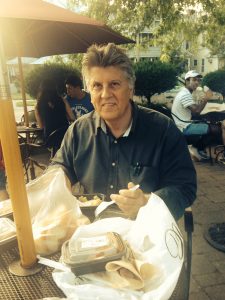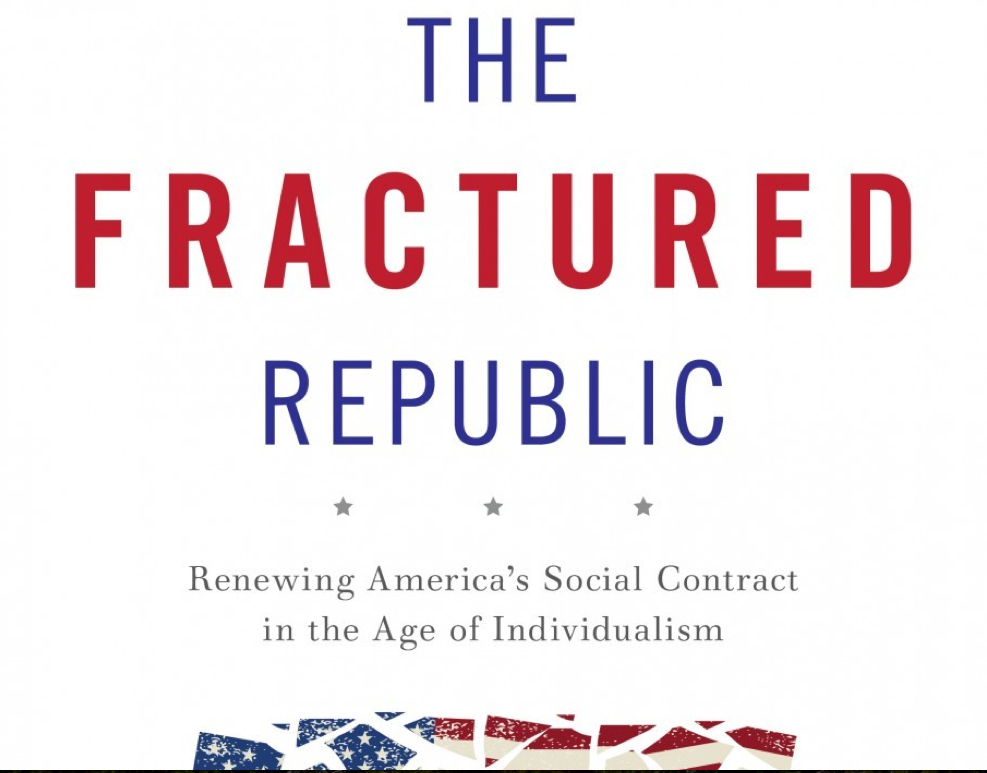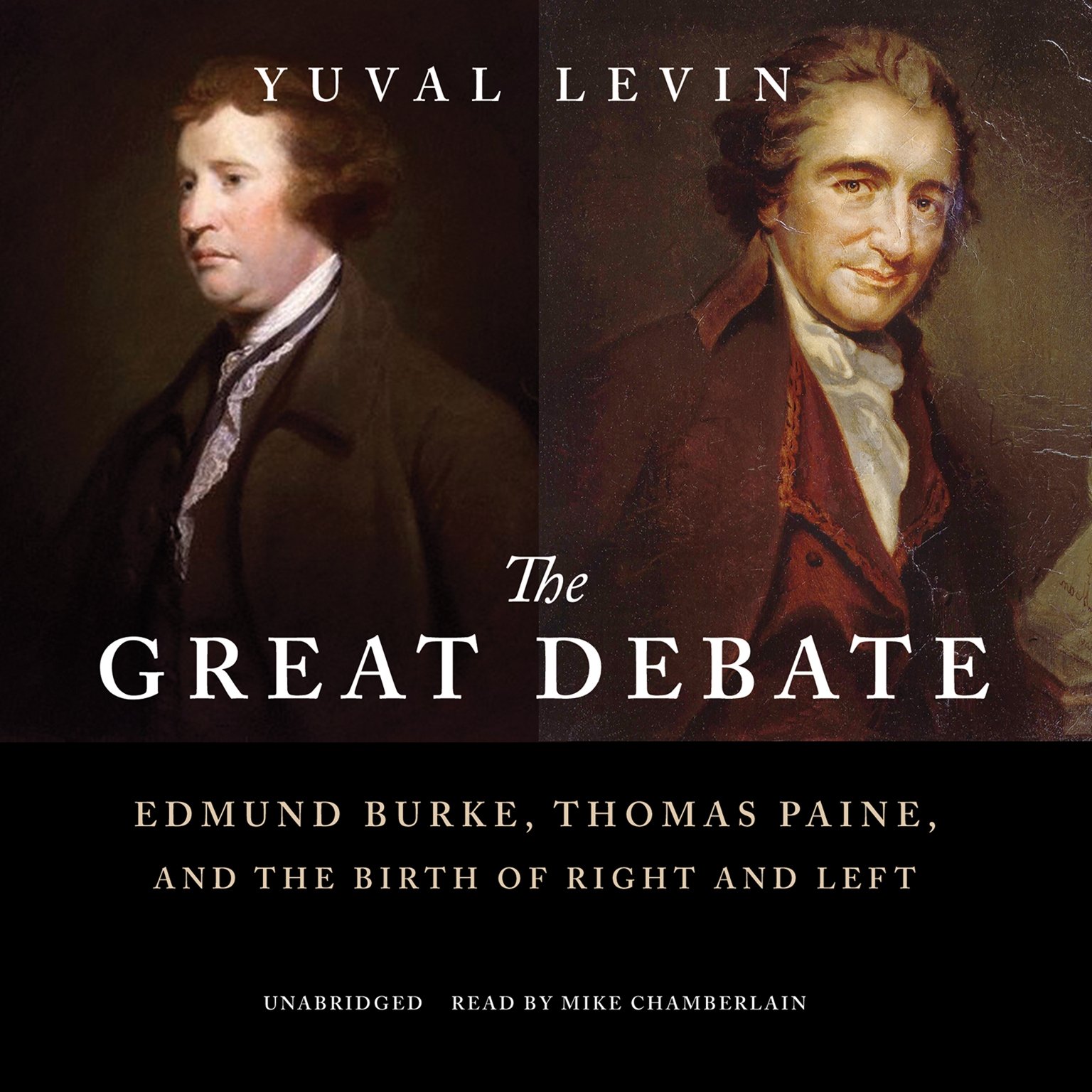Click on any picture below to enlarge.
The Beinecke Rare Book & Manuscript Library at Yale is one of the world’s best. Unlike Harvard’s collection, you don’t need to wear white gloves. Once we were vetted, we were shocked by the freedom they give to scholars.
Here are a few things we looked at. First, is Jonathan Edwards Bible. Paper was rare, but Jonathan liked to write…a lot. You will see that the small sheet has the passage of Scripture and then two blank pages to take notes on what he was reading. And did he ever take notes! I did somewhat of a quick count of his handwritten notes on Genesis and each page has about 2500 words! On a similar size sheet of paper I write about 250 words.
Jonathan’s wife, Sarah, along with their daughters, made fans. When the fans were no longer of use, Jonathan would take the delicate scraps and weave them into a book where he could write down sermon notes, etc.
Doreen got choked up when she held Jonathan’s Bible in her hands. The word that kept coming to my mind was “humbling” as you see the great effort Jonathan exerted to make sense of God’s Word.
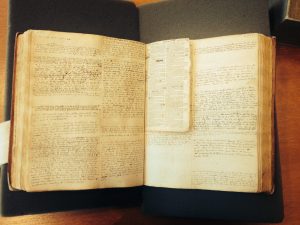
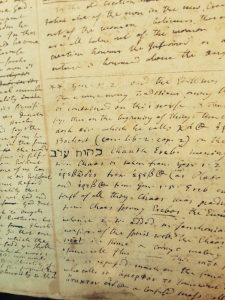
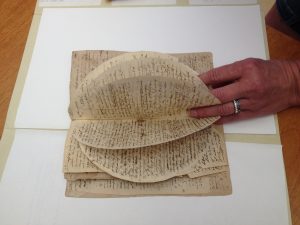
Fabric from Sarah’s wedding dress.

Our dear friend, Dr. Dave Mahan, is the director of the Rivendell Institute (www.rivendellinstitute.org) and teaches at Yale Divinity. Dave set us up with Susan Howe, who is a world-renowned poet. In 2017, she won the Robert Frost Medal for “distinguished lifetime service to American poetry.” Susan was a sheer delight to be with. We spent two terrific hours at her beautiful home in the country. Susan is candid about not being a Christian, but she is captivated by the beauty and respect for language she finds in Jonathan and Sarah Edwards.
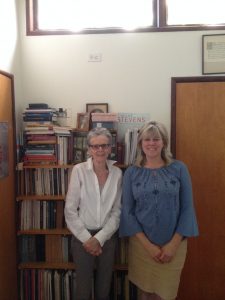
I headed over to Yale’s Sterling library and was thrilled to see they have my first book.
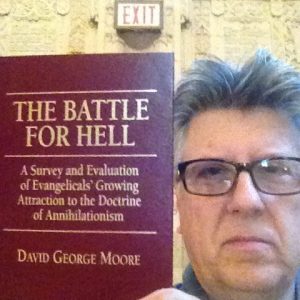
Michael McClymond is Professor of Modern Christianity at St. Louis University. Doreen met Mike in college some thirty-five years ago! She had not seen Mike since, but he happened to be at Yale the same time as us. Mike told us about his various writing projects, one of which he happened to remember quoting my book, The Battle for Hell. Mike is a wonderful guy, expert on Jonathan Edwards, and graciously offered to be a resource for Doreen with her book on Sarah.
Check out Mike’s work here: https://sites.google.com/a/slu.edu/michael-j-mcclymond/
The great folks at the Overseas Ministries Study Center made our time fun and fruitful. Many thanks to Dr. Tom Hastings, Pam Huffman, Pam Sola, Michael Racine, Ray Sola, Judy Stebbins, and the ever present help of Chee-Seng and Sharon!
Check them out at www.omsc.org.
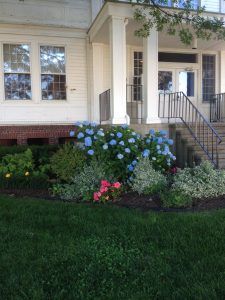
I will close with a foodie picture. This is Nica’s Market (www.nicasmarket.com), a terrific and reasonable place to grab a bite (or many bites!) to eat. The guy behind me seems skeptical about my choices, but trust me, they were good.
